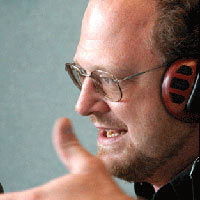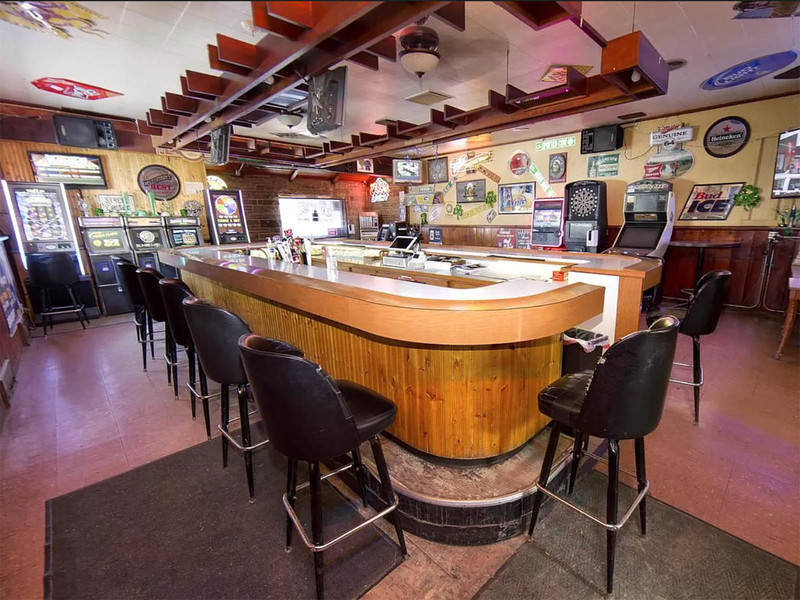The opinions expressed in this piece do not necessarily reflect the opinions of OnMilwaukee.com, its advertisers or editorial staff.
Area Ald. Tony Zielinski has said he would like to see a "solar village" concept put in play for the land, including housing. Senior housing was floated as a possibility, and according to the now-complete Southeast Side Plan -- still in draft form and requiring Common Council approval -- and the soon-to-be released redevelopment criteria, that appears to be an option.
A Common Council committee was to consider a proposal to label the land as "surplus" and put it up for bids. The plan calls for a three or four-month marketing effort. The terms of the plan, as considered by the Council's Public Works Committee, include:
- A mix of taxable single-family, townhouse and multi-family residential units that positively impact the surrounding residential neighborhood.
- High level of sustainable building elements and energy-efficient practices, with extra credit given for certified Green Building projects.
- A majority of the units should be owner-occupied.
- Some retail could go along Bay Street.
Prohibited uses would be any plans for tax-exempt properties, day care centers, convenience stores, gun shops, payday loan stores, taverns and auto garages and dealers.
The resolution considered this week also calls for community representatives to participate on the project review panel.
The Southeast Side Plan, which is up for approval next week, is a more comprehensive document encompassing the southeast side of the city. It offers two concepts for the parcel. One includes two-story buildings closer in scale to the existing neighborhood along Logan Avenue and three story buildings along Bay Street.
The second alternative would likely be a little more controversial; it includes taller buildings in order to create lake views.
"The second concept creates individual garden plots, shared green space and lake views by selectively adding two taller buildings while keeping the density of the development the same," states the plan.
Driving force: The City of Milwaukee's driver's license recovery program is gaining in popularity, so much so that officials brought in extra staff to handle the caseload, according to a report on the effort to be issued next week.
The recovery program helps low-income people get their driver's licenses back, offers free driver's education and works to limit license revocations and suspensions by offering community service or lenient payment plans.
The program is run through Justice 2000, Inc., which runs many programs designed to create alternatives to incarceration among other efforts.
As of September, the program served 2,191 people this year, closed 666 cases and got 382 people their license back for a recovery rate of 57.4 percent. The cost was $1,516 per license, compared with last year's cost of $1,966 per license.
A key law change this year allowed the courts to declare license revocations as license suspensions, making it easier for people to get driver's permits. Another change is that loans for people with less than $250 in fines are available so people can get their licenses back more quickly.
"The program is a cornerstone service for both public and private workforce development organizations in the Milwaukee area," the report says.
The group reports two major obstacles to getting licenses back. First, many people are so poor they can't afford mandatory car insurance, even if they aren't convicted of accidents or worse. The program works to re-open cases to get the mandatory insurance issue pulled. Another major barrier is that people don't have the driver's education background to pass the test once they're approved to take it. The program sponsors driver's ed classes to help.
Bronzeville Bail-out: Borrowing a page from the bank bail-out playbook, City of Milwaukee officials are resorting to similar tactics to save a high-profile redevelopment effort. The closing of the Black Holocaust Museum and -- believe or not, -- Grant's Soul Food was a serious blow to the city's prized development projects known as Bronzeville, which encompasses the North Avenue area roughly from King Drive to I-43. The museum, at 2233 N. 4th St., ran out of money and closed July 31.
In stepped the city's Redevelopment Authority, which will consider this week the idea of buying the museum for $250,000. The Authority also will consider buying the Grant's Soul Food restaurant building, 411 W. North Ave., for $230,000. Grant's and the museum were identified in the city's proposal for the district as "catalyst" businesses that would be the main attractions for new cultural offerings in the neighborhood. It seemed a stretch when the district was first proposed and planners did put a word of caution in their report at the time.
The Bronzeville project is utilizing a special taxing district to bring some cultural revitalization to the area. So far, that's mostly been in the form of new taverns and depending on the perspective, the area has been slow to take off.
Shot in the Foot: It's not a good sign for the campaign of John Gard, the Republican running for congress in a rematch against Steven Kagen. Gard, a former speaker of the Assembly, lost to Kagen in a huge upset in 2006. Many wondered if his rather edgy temperament got the best of him, but the Gard camp attributed the loss to Kagen's big money campaign.
Kagen recently scored the endorsement of one of the most conservative groups in the country -- the National Rifle Association. The NRA is almost exclusively a bedfellow of Republican causes and candidates so the nod toward Kagen has to be a huge blow in this northeastern Wisconsin race, where voters are known as much for the affinity towards hunting with guns as they are wearing Packers garb.
An avid outdoors person he regularly takes extended paddling trips in the wilderness, preferring the hinterlands of northern Canada and Alaska. After a bet with a bunch of sailors, he paddled across Lake Michigan in a canoe.
He lives in Bay View.





